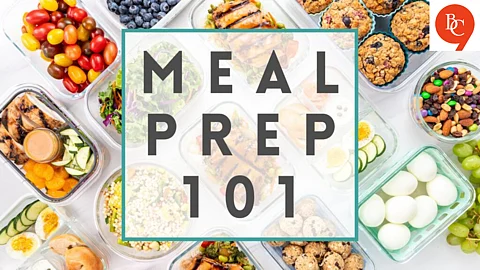

Whether you’re a busy college student, a working professional, or someone simply trying to eat clean, this beginner’s guide to meal prep has you covered.
What Is Meal Prepping?
Meal prepping is the practice of planning and preparing your meals in advance, usually for the week ahead. It can range from fully cooked meals stored in containers to pre-chopped ingredients that make cooking faster during the week.
Why Meal Prep?
Here’s why meal prepping is more than just a trend:
Saves Time: No more deciding what to cook every single day.
Saves Money: You avoid last-minute takeout and make use of ingredients efficiently.
Supports Healthy Eating: You control the ingredients and portions.
Reduces Stress: One cooking session, several meals—less daily mess and decision fatigue.
Less Food Waste: You buy and cook exactly what you need.
Step-by-Step Guide to Start Meal Prepping
1. Plan Your Meals
Start by planning meals for the next 3–5 days. Focus on breakfast, lunch, dinner, and snacks. Keep it realistic—stick to dishes you actually enjoy and are comfortable making.
2. Make a Grocery List
Based on your plan, make a detailed list. Stick to it! Shopping with a purpose helps cut down on unnecessary purchases and junk food.
3. Choose Your Prep Style
Batch Cooking: Cook large portions of a few meals and divide them into containers.
Ingredient Prep: Chop veggies, marinate proteins, and cook grains ahead of time for faster cooking later.
Grab & Go: Prep individual portions of snacks like fruit boxes, energy balls, or overnight oats.
4. Invest in the Right Tools
Airtight containers (glass or BPA-free plastic)
Mason jars for salads or smoothies
Labels or markers for dates
A good non-stick pan and baking sheet
5. Prep Smart and Store Right
Use shallow containers for faster cooling.
Let food cool before sealing and refrigerating.
Store meals for up to 3–5 days in the fridge or freeze extras.
Place newer meals at the back so you eat the older ones first.
Common Meal Prep Mistakes to Avoid
Too much variety = burnout
Over-seasoning = flavors intensify over time
Not checking storage life = soggy or spoiled meals
Skipping snacks = leads to unplanned bingeing
Meal prepping isn’t about eating the same meal every day or obsessing over calories — it’s about eating with intention. Once you find your rhythm, it becomes second nature, and the benefits will show up in your energy levels, wallet, and time.
